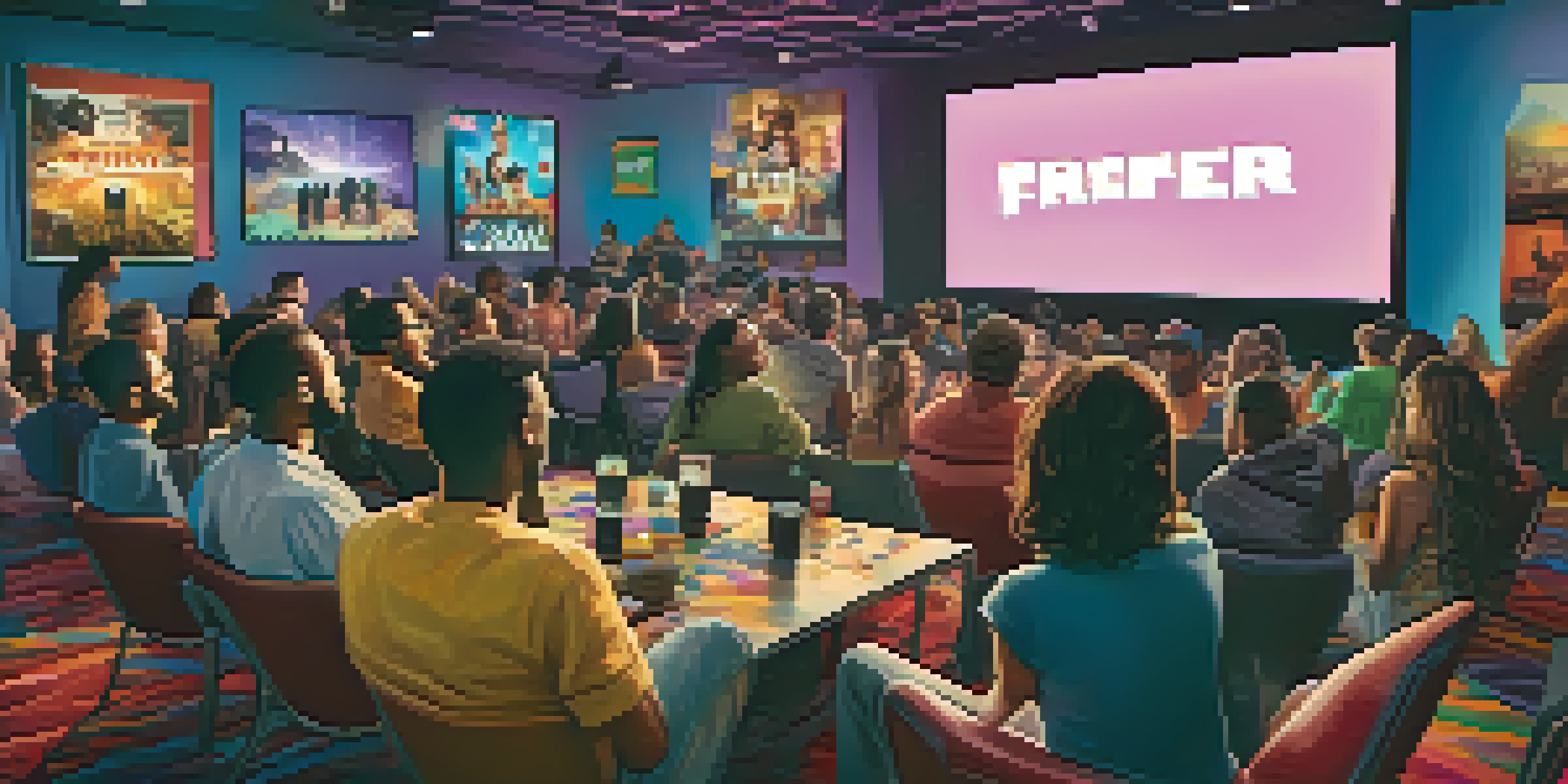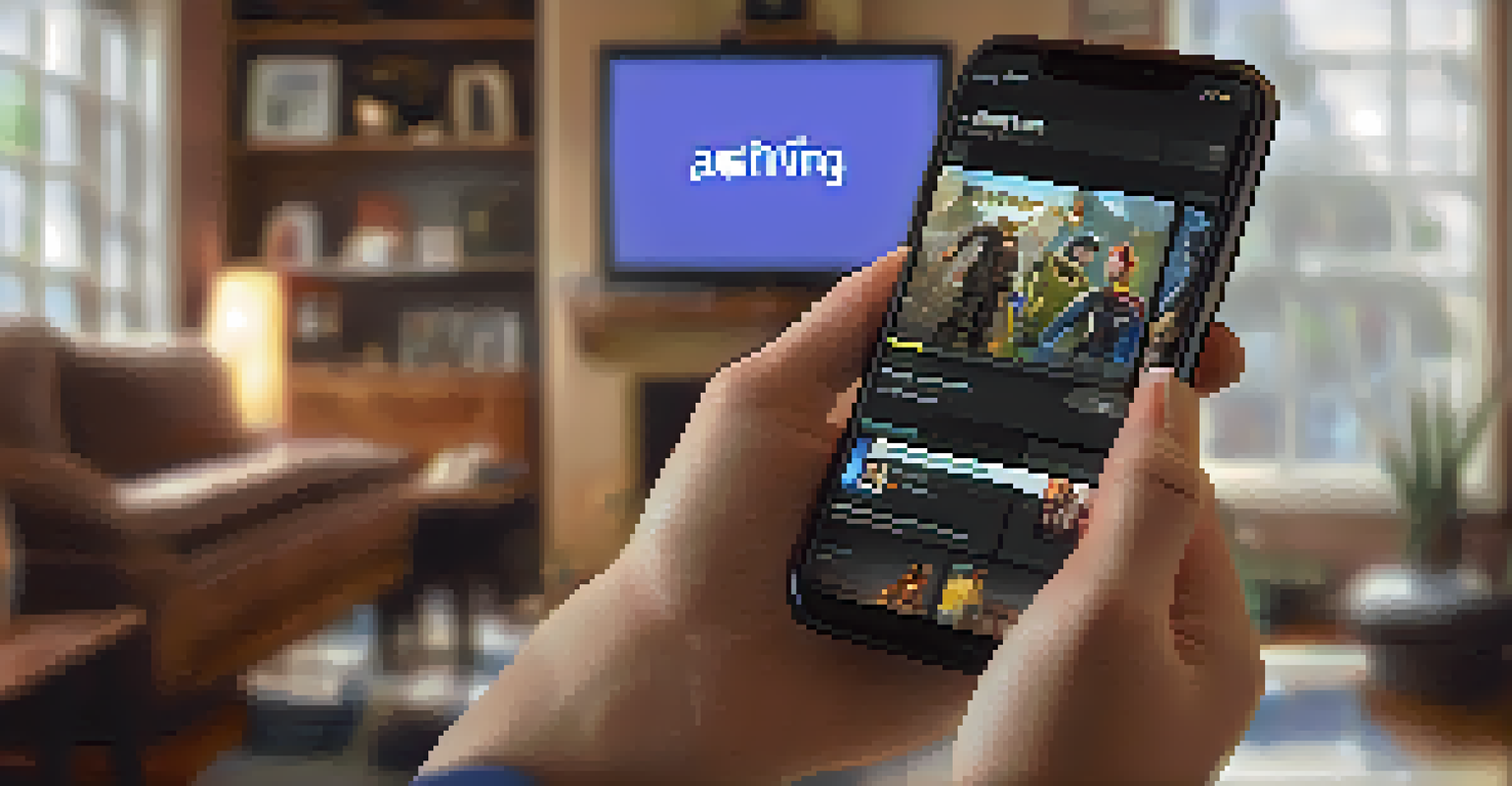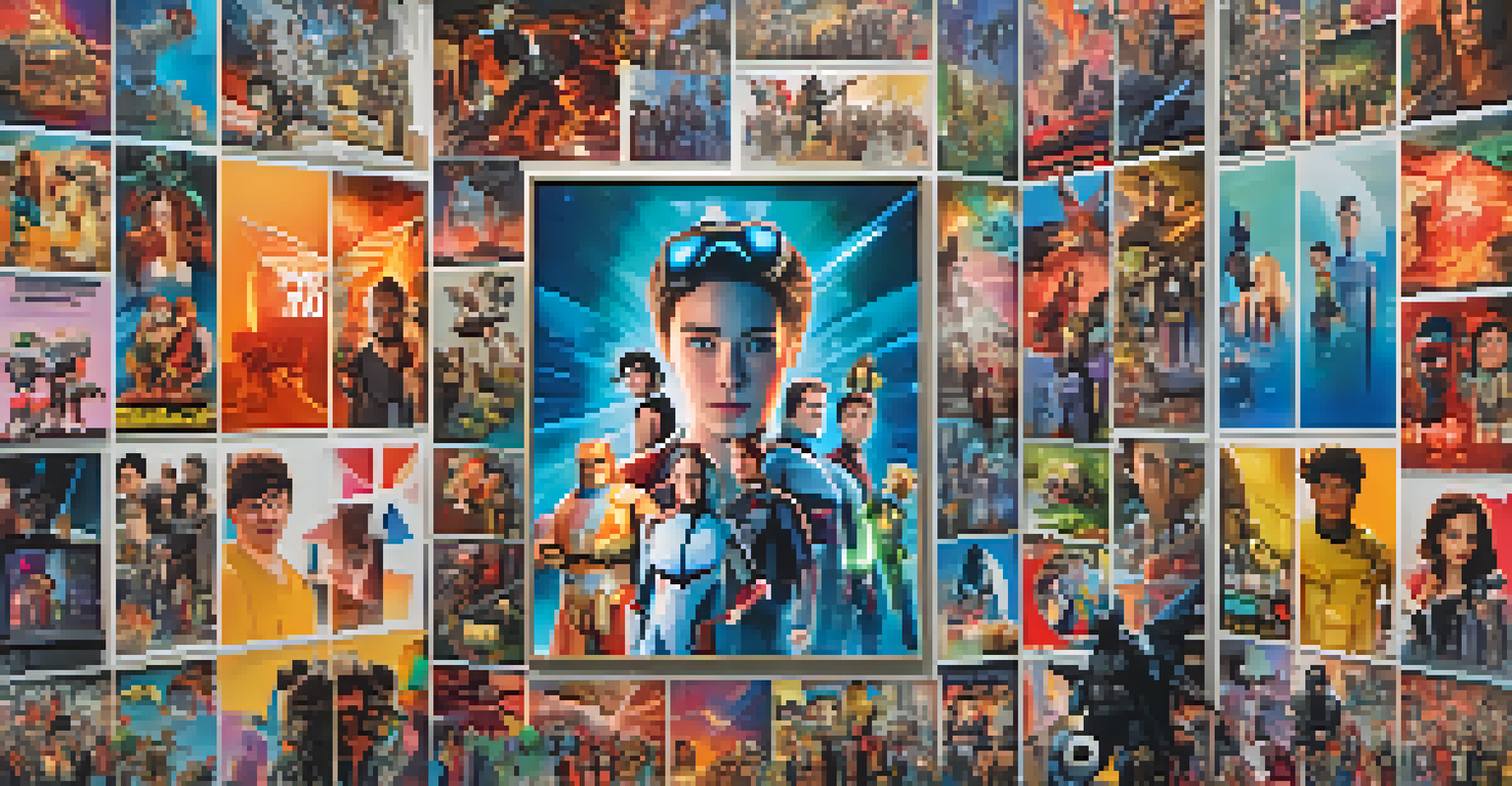The Influence of Social Media on Film Marketing Strategies

Understanding Social Media's Role in Film Marketing
Social media has become a vital tool in film marketing, reshaping how movies connect with audiences. Platforms like Instagram, Twitter, and TikTok allow filmmakers to engage with fans directly, creating a buzz before a film’s release. This engagement builds anticipation, which is crucial for box office success.
Social media allows filmmakers to engage with fans directly, creating a buzz before a film’s release.
Gone are the days when traditional marketing strategies dominated the scene. Instead of relying solely on trailers and posters, filmmakers can now leverage the power of social media to create interactive marketing campaigns. These campaigns often include behind-the-scenes footage, sneak peeks, and Q&A sessions with cast members, making fans feel involved.
With the ability to share content instantly, social media helps films go viral, reaching wider audiences faster than ever. This organic reach can lead to increased ticket sales, as fans are more likely to support films they feel connected to, thanks to effective social media strategies.
Building Anticipation Through Teasers and Trailers
Teasers and trailers are no longer just standalone videos; they are often strategically released on social media to maximize reach. By sharing clips across multiple platforms, filmmakers can create a sense of urgency and excitement among potential viewers. This approach not only grabs attention but also encourages sharing within online communities.

Moreover, social media allows filmmakers to experiment with different formats. For instance, short, catchy video snippets on TikTok can generate significant buzz, often leading to trends that promote the film. This adaptability helps filmmakers cater to the preferences of their target audience while maximizing visibility.
Social Media Transforms Film Marketing
Social media allows filmmakers to engage directly with audiences, creating excitement and anticipation for upcoming films.
Using social media to unveil trailers also fosters a community atmosphere. Fans often discuss and dissect trailers in real-time, creating a dialogue that keeps the film on their radar. This sense of involvement can translate into higher attendance on opening weekend.
Engaging Audiences with Interactive Content
Interactive content, such as polls, quizzes, and live streams, is a game-changer in film marketing. By inviting fans to participate, filmmakers can foster a deeper connection with their audience. For example, a movie release could feature a poll asking fans to vote for their favorite character, creating an engaging experience that keeps the film top-of-mind.
User-generated content adds an authentic touch that resonates with potential audiences.
Live streaming events, like virtual red carpets or Q&A sessions, also allow fans to engage directly with the cast and crew. This level of access makes viewers feel special and more connected to the film. It's a win-win situation: fans get a unique experience, while filmmakers generate buzz and excitement.
Furthermore, interactive campaigns can lead to user-generated content. Fans may create their own videos or artwork inspired by the film, which can then be shared on social media. This organic promotion not only enhances engagement but also builds a community around the film.
Leveraging Influencer Partnerships for Wider Reach
Influencer partnerships have become a cornerstone of modern film marketing. Collaborating with social media influencers who resonate with the film's target audience can significantly amplify marketing efforts. These influencers have built loyal followings, and their endorsement can lend credibility to a film's campaign.
For instance, a horror movie might partner with popular YouTube horror reviewers, generating buzz before its release. Their audience trusts their opinions, which can lead to increased interest and ticket sales. This strategy not only broadens reach but also targets specific demographics effectively.
Interactive Content Boosts Engagement
By utilizing polls, quizzes, and live streams, filmmakers can foster deeper connections with fans and enhance their marketing strategies.
Additionally, influencers often create engaging content around the film, such as reaction videos or themed challenges. This user-generated content can go viral, further expanding the film’s visibility and enticing more viewers to check it out.
Harnessing the Power of User-Generated Content
User-generated content (UGC) plays a significant role in film marketing strategies today. When fans create and share their own content related to a film, it adds an authentic touch that resonates with potential audiences. This could be fan art, short videos, or even memes, all of which help promote the film organically.
Encouraging UGC can be a strategic move for filmmakers. Campaigns that invite fans to share their experiences or opinions about a film often lead to a surge in online discussions. For example, a movie might host a contest where fans submit their own interpretations of a scene, fostering creativity and engagement.
Furthermore, UGC acts as social proof, showcasing genuine excitement for the film. When potential viewers see their peers engaging with a movie, they're more likely to be interested themselves. This community-driven marketing approach can create a ripple effect, drawing in more audiences.
Using Analytics to Shape Marketing Strategies
Analytics have become an integral part of film marketing, particularly within the realm of social media. By tracking engagement metrics, filmmakers can gauge the effectiveness of their campaigns and make informed decisions. Understanding which posts resonate with audiences helps tailor future marketing strategies for better results.
For instance, if a trailer shared on Instagram garners significant interaction, filmmakers might choose to invest more in similar content. Conversely, if certain promotional posts underperform, they can adjust their approach to engage followers more effectively. This data-driven approach optimizes marketing budgets and maximizes outreach.
User-Generated Content as a Tool
Encouraging fans to create and share content related to a film can generate authentic buzz and act as effective social proof.
Moreover, analytics can reveal audience demographics and preferences. By understanding who is engaging with their content, filmmakers can target specific segments more accurately. This insight allows for more personalized marketing efforts, enhancing the overall effectiveness of the campaign.
The Future of Film Marketing in the Age of Social Media
As technology continues to evolve, so will the landscape of film marketing. Social media platforms are constantly updating their algorithms and features, which means filmmakers must stay agile and adaptable. Embracing new trends, such as augmented reality (AR) experiences or immersive storytelling, could redefine how films are marketed.
Additionally, the rise of streaming services has shifted audience viewing habits. Filmmakers need to pivot their marketing strategies to cater to this new reality. Engaging audiences through social media will likely become even more crucial as competition increases in an oversaturated market.

Ultimately, the influence of social media on film marketing strategies will continue to grow. As filmmakers embrace innovative approaches and engage with audiences authentically, they can cultivate lasting connections that drive both interest and attendance.